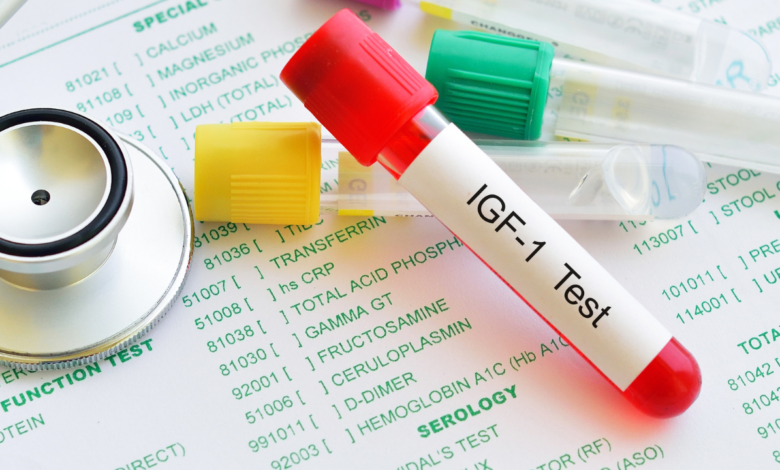Insulin-like Growth Factor 1 (IGF-1)

What is Insulin-like Growth Factor 1 (IGF-1) test?
IGF-1 is a hormone produced primarily by the liver in response to growth hormone. It plays a crucial role in growth, development, and metabolism. IGF-1 levels are influenced by factors such as age, sex, nutrition, and exercise.
Why Insulin-like Growth Factor 1 (IGF-1) test is required?
An IGF-1 test may be ordered to:
- Evaluate growth hormone function.
- Diagnose growth hormone deficiencies or excesses.
- Assess the risk of certain health conditions, such as osteoporosis or cardiovascular disease.
- Monitor the effectiveness of treatments for growth hormone disorders.
- Investigate fertility issues in both men and women.
Which are the method of Insulin-like Growth Factor 1 (IGF-1) test?
The most common method for measuring IGF-1 levels is a blood test. A blood sample is drawn and analyzed in a laboratory.
Who should go for Insulin-like Growth Factor 1 (IGF-1) test?
Individuals who may benefit from an IGF-1 test include:
- Children with growth delays or excessive growth.
- Adults with symptoms of growth hormone deficiency or excess, such as fatigue, weakness, or changes in body composition.
- People with fertility issues.
- Those at risk for osteoporosis or cardiovascular disease.
- Individuals undergoing treatment for growth hormone disorders.
What are the results of Insulin-like Growth Factor 1 (IGF-1) test?
The results of an IGF-1 test are typically expressed as a numerical value representing the concentration of the hormone in the blood. Abnormal levels may indicate underlying health conditions. It’s important to consult with a healthcare provider to interpret the results and discuss appropriate next steps.
What are the components of Insulin-like Growth Factor 1 (IGF-1) test?
The IGF-1 test itself typically involves only a blood sample. However, it may be ordered in conjunction with other tests, such as growth hormone or insulin, to provide a more comprehensive picture of hormonal function.





